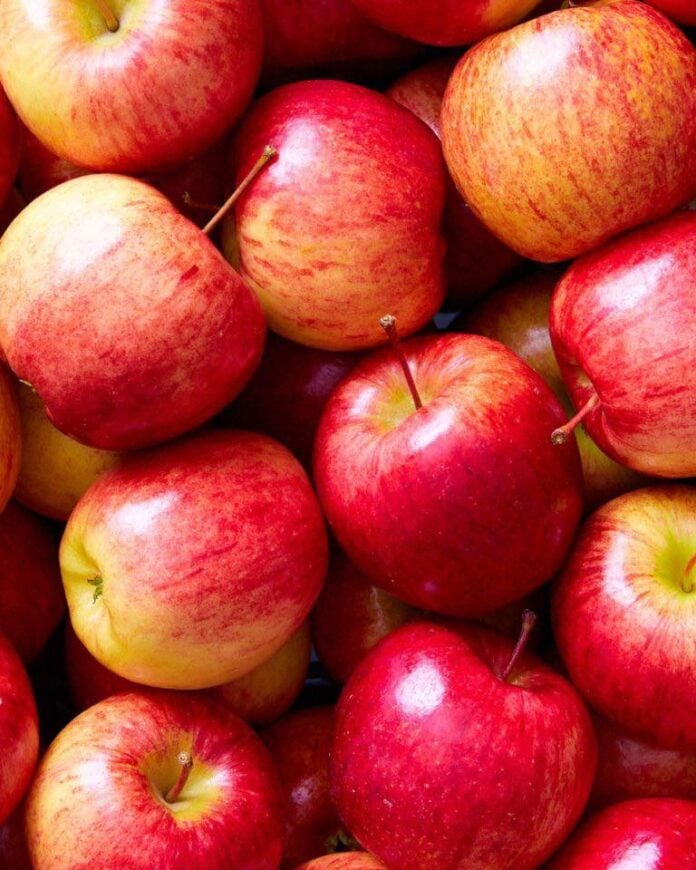For generations, the phrase “an apple a day keeps the doctor away” has been repeated as simple folk wisdom. But in recent years, medical researchers have begun to confirm just how true that old saying might be. Far from being an ordinary fruit, apples are now recognized as a quiet powerhouse of nutrition that supports heart health, reduces inflammation, and may even help prevent certain forms of cancer.
Below is a closer look at what science says about this familiar fruit—and why adding one to your daily routine can be one of the easiest, most natural ways to support your long-term health.
The Heart’s Best Everyday Ally
Your heart works every second of every day, and it needs the right nutrients to keep blood flowing smoothly. Apples provide several of them in abundance.
One of the key components in apples is soluble fiber, especially a type called pectin. Pectin binds to cholesterol in the digestive system, helping reduce levels of “bad” LDL cholesterol while keeping “good” HDL cholesterol steady. This simple effect supports clearer arteries, better circulation, and a lower risk of atherosclerosis.
Apples also contain flavonoids—plant compounds that act as antioxidants. One of the most beneficial is quercetin, known for protecting blood vessels from inflammation and improving their elasticity. When blood vessels stay flexible, blood pressure remains more stable, and the heart doesn’t have to work as hard.
Several large population studies have found that people who regularly eat apples have a lower risk of heart disease, regardless of age or lifestyle. In other words, a simple fruit that costs just a few cents can offer a level of protection many people try to achieve with expensive supplements.
Nature’s Subtle Defense Against Cancer
Apples’ protective benefits extend beyond heart health. Increasing research suggests they may also play a role in helping the body defend itself against certain types of cancer.
The skin of the apple, often peeled away and thrown out, is actually the richest source of these cancer-fighting compounds. It contains polyphenols and other bioactive substances that help neutralize harmful molecules in the body and limit the growth of abnormal cells.
In laboratory studies, these compounds have shown an ability to:
- Slow down the multiplication of damaged or diseased cells
- Support the body’s natural repair and elimination processes
- Interfere with the formation of new blood vessels that tumors need to grow
Epidemiological research has linked regular apple consumption to a lower risk of colorectal, lung, and breast cancers. While no fruit can replace medical treatment or early screening, apples appear to enhance the body’s own defense systems in a safe, natural way.
To make the most of these benefits, eat apples with the peel intact—that’s where most of the antioxidants are found. Whether raw, baked, sliced into salads, or blended into smoothies, apples retain much of their nutritional value in nearly every form.
Simple Nutrition, Lasting Results
One of the most remarkable things about apples is how easy they are to include in daily life. You don’t need complicated recipes or expensive ingredients—just a fresh apple at breakfast, lunch, or as an afternoon snack.
That one small choice provides fiber for digestion, antioxidants for cell health, and steady energy without a sugar crash. It’s a wholesome habit that fits effortlessly into any age or lifestyle, especially for older adults looking to support heart and immune health naturally.
Unlike many modern supplements or “superfood” trends, apples are readily available, affordable, and thoroughly studied. Choosing whole foods like these is still one of the simplest ways to strengthen the body’s resilience over time.
The Takeaway
Behind its crisp sweetness and humble appearance, the apple carries extraordinary health potential. It helps maintain heart function, supports the immune system, and may even guard against the slow cellular changes that lead to disease.
The next time you visit the grocery store, remember that a small choice can have lasting effects. Reach for an apple—not just as a snack, but as a daily investment in your health.



